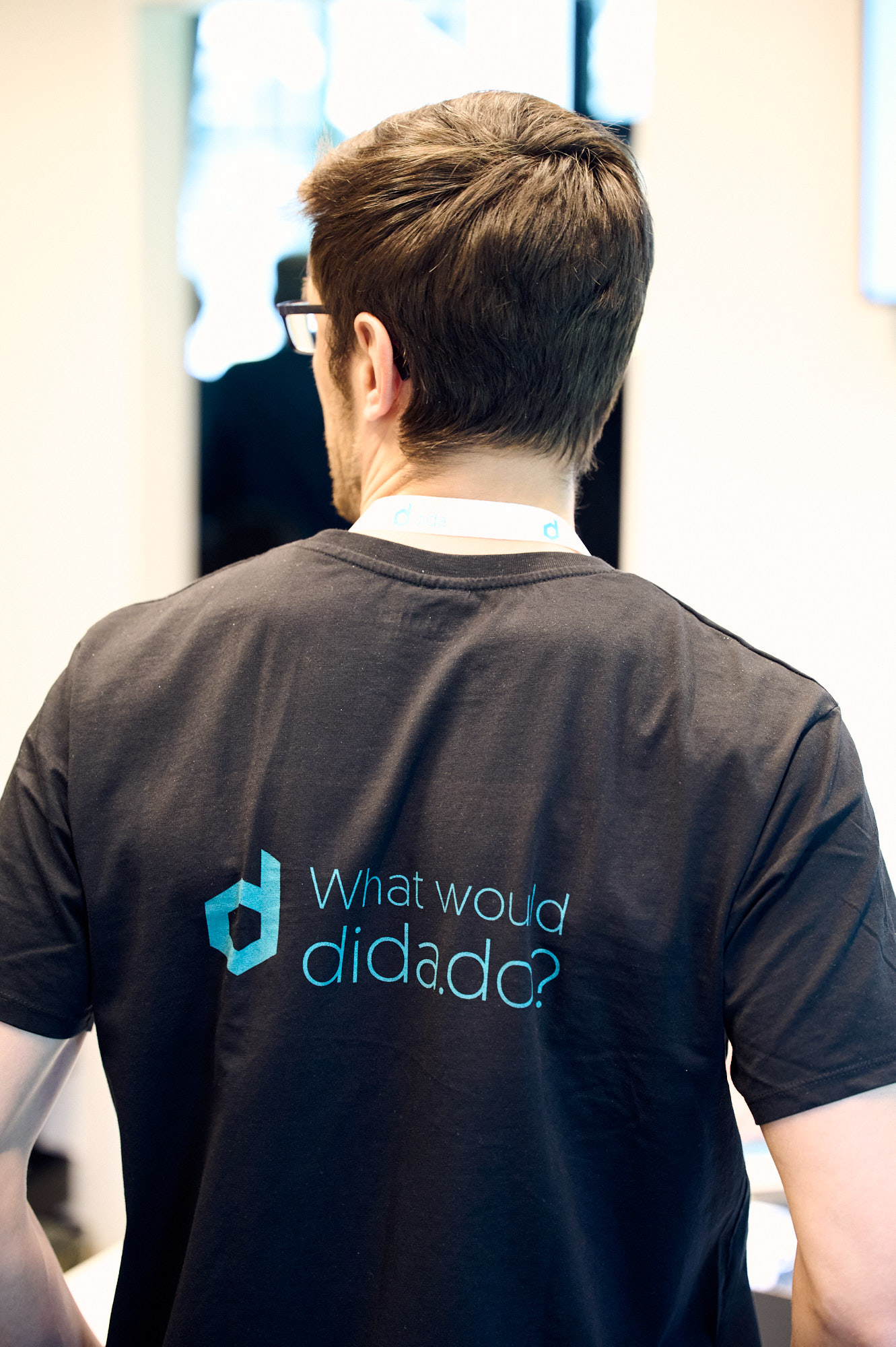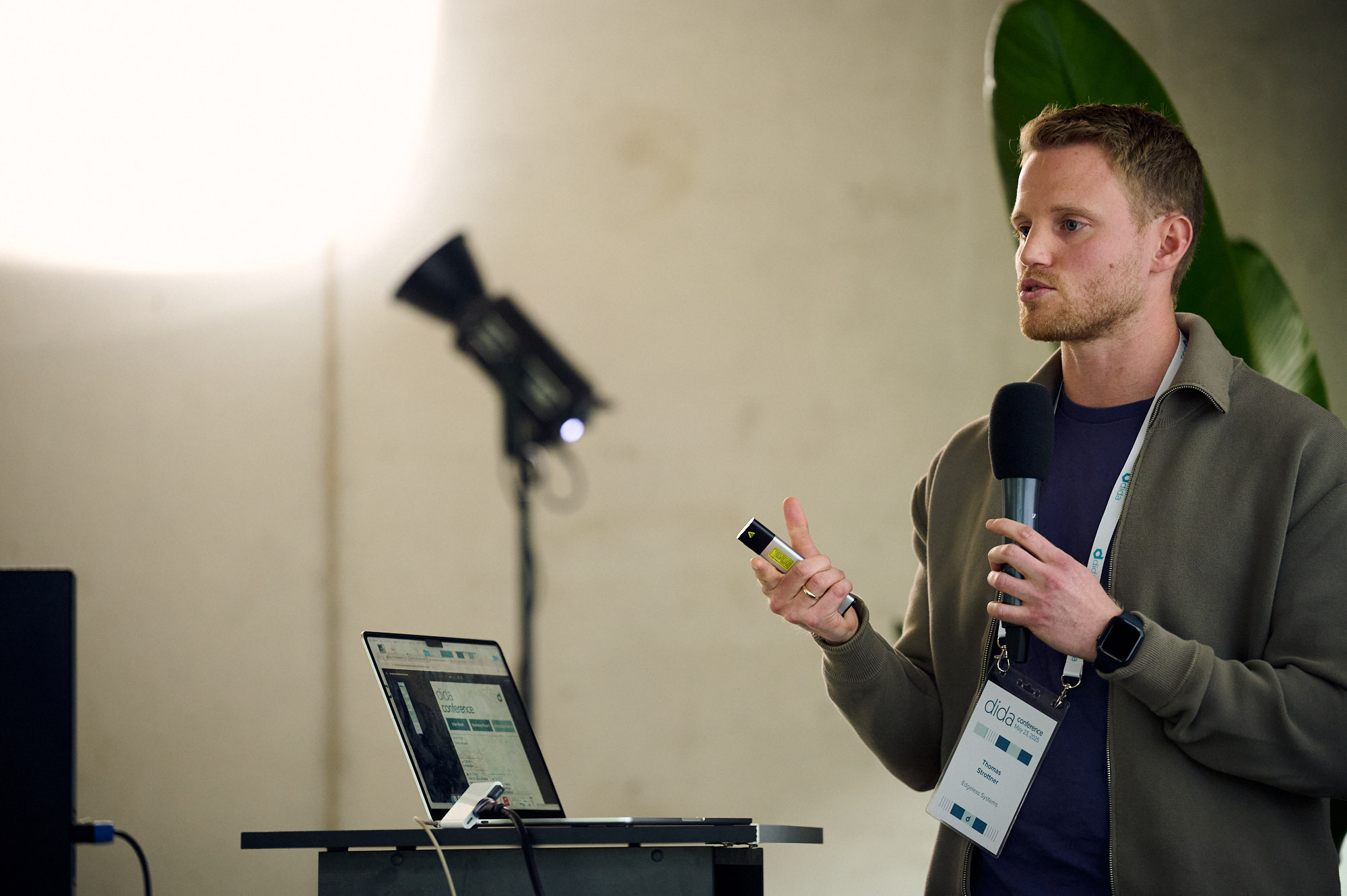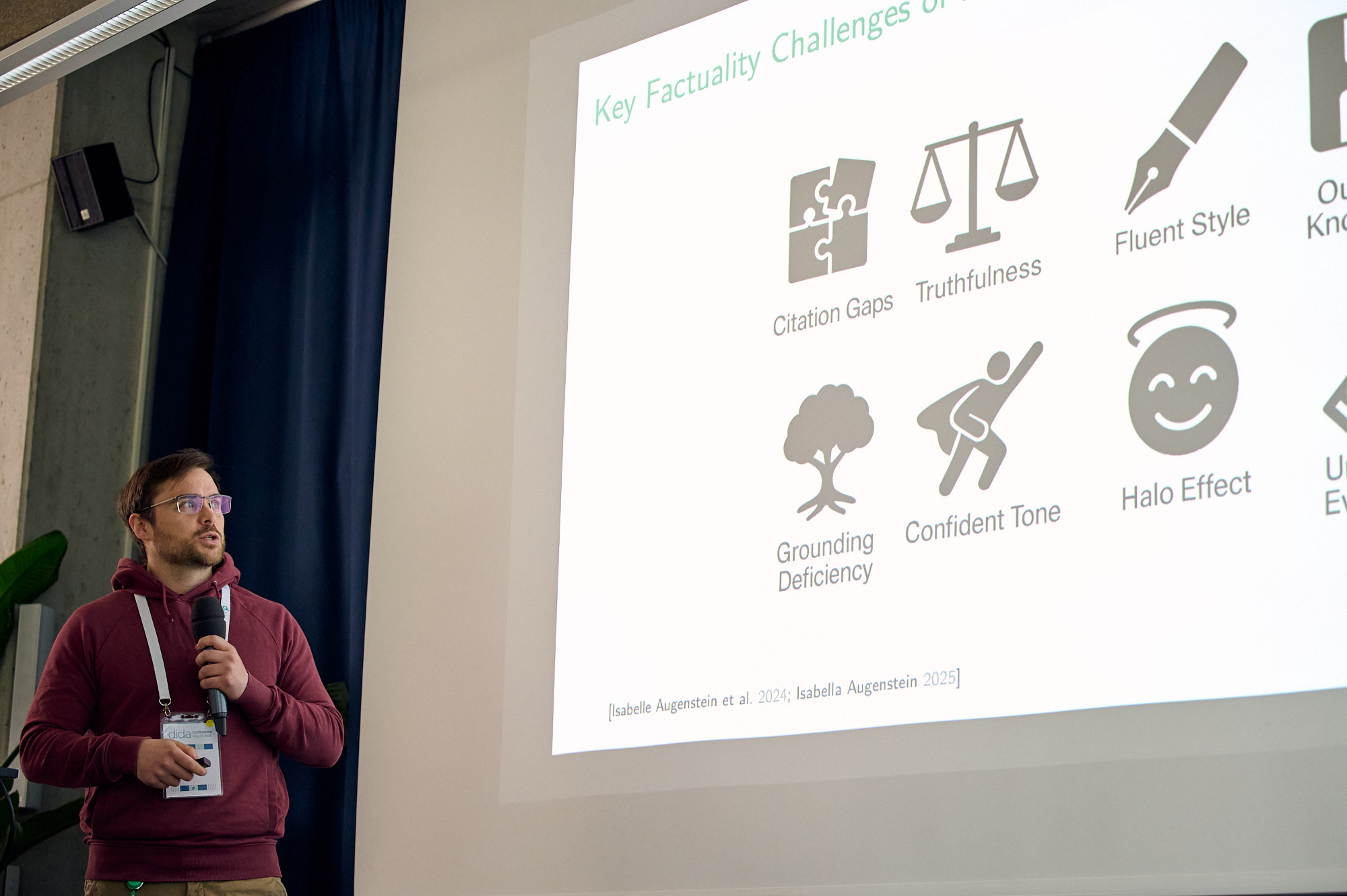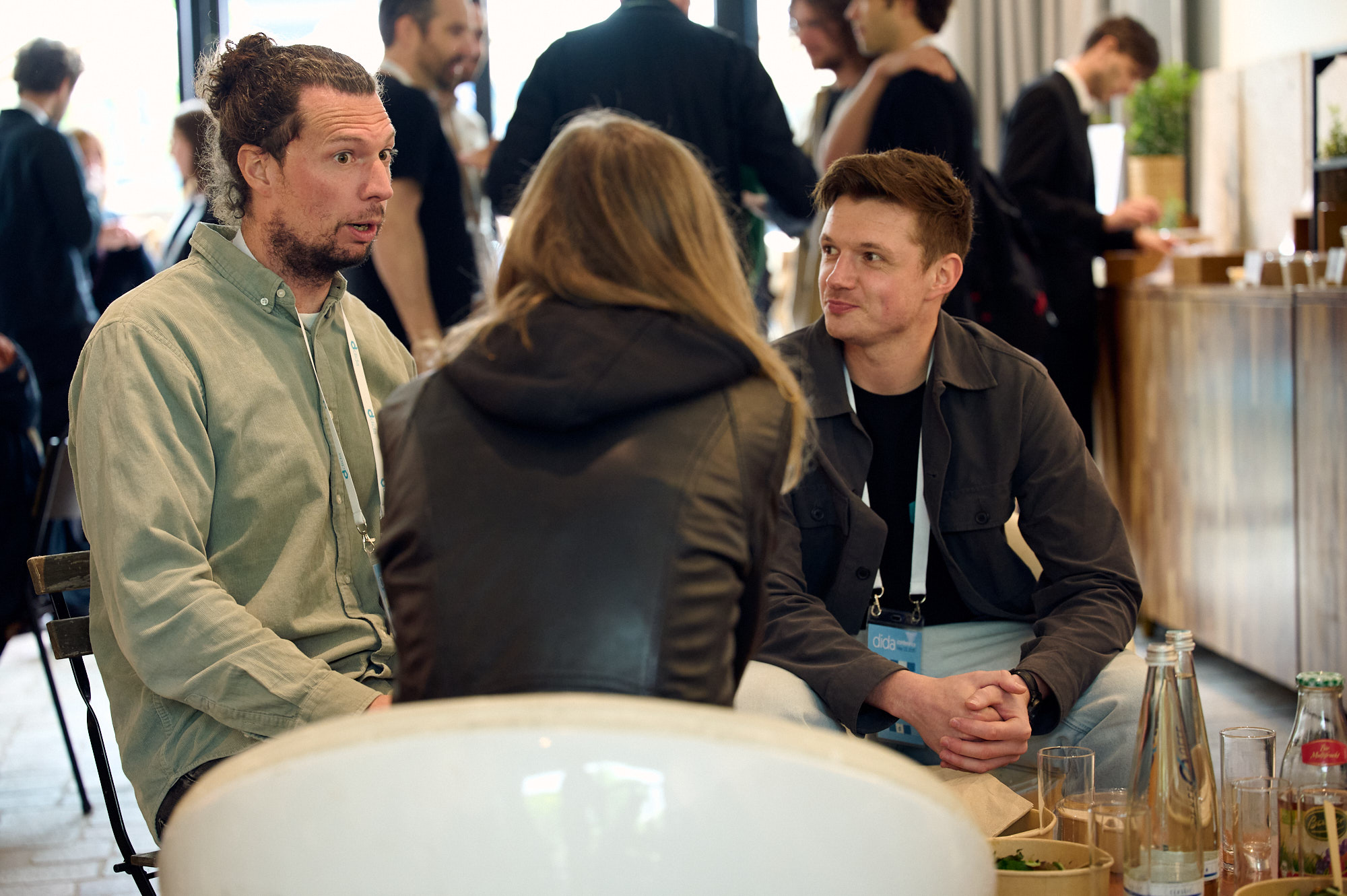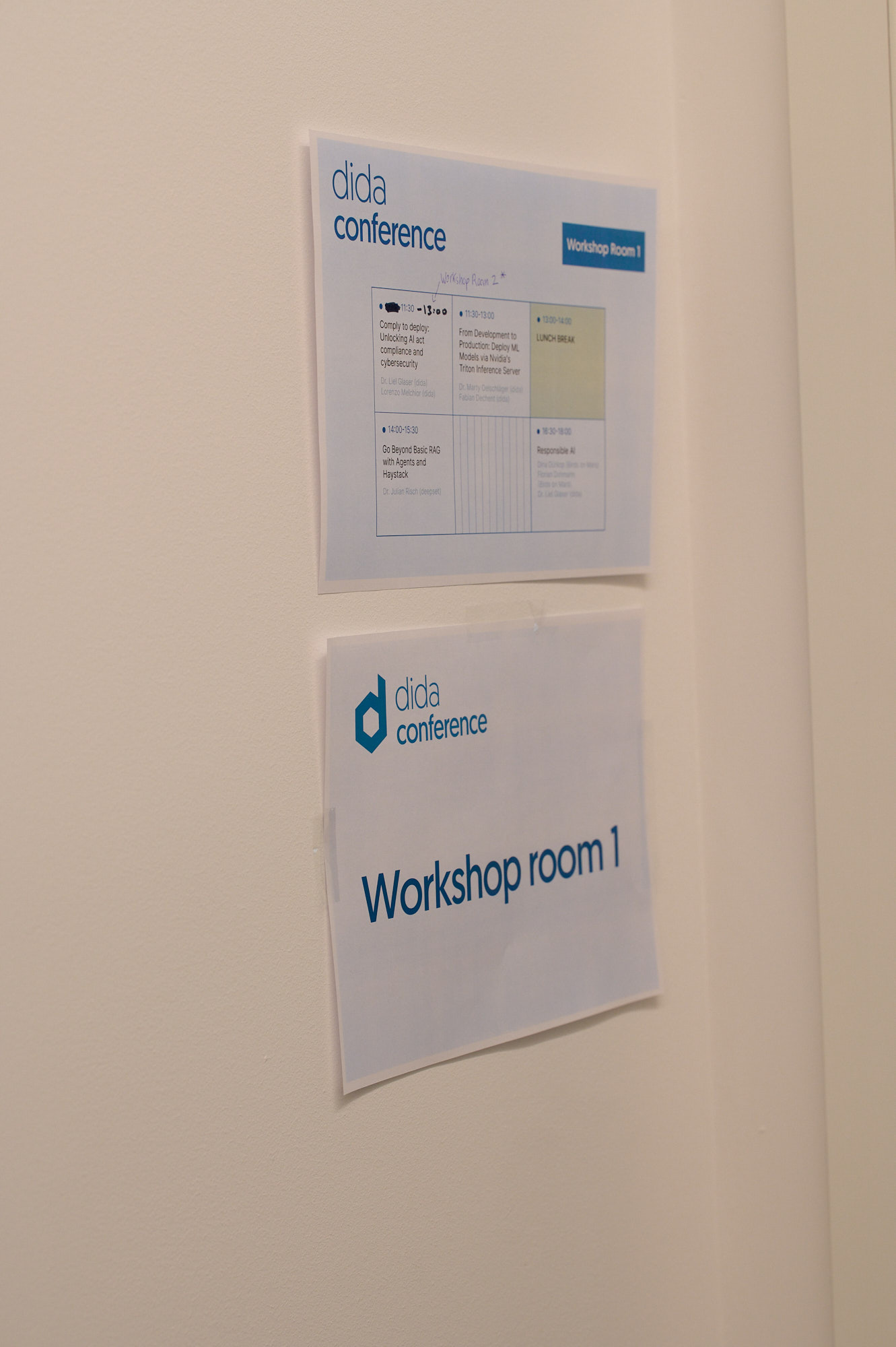You are invited to a day full of machine learning
After two successful dida conferences in the last two years (see the video below and recordings of the talks 2023 and 2024) we are looking forward to a new edition this year. The conference will feature talks on machine learning (applied and technical), workshops, space for networking and, of course, good food.
You are invited to a day full of machine learning
This year we have a new event location with the frizzforum in Berlin. As the number of participants is limited, we recommend early registration.

Photos


Speakers
Andrey Vasnetsov
Andrey is the Co-Founder and CTO of qdrant, where he advances high-performant vector similarity search technology. He has a background in computer science.
Dr. Sebastian Lapuschkin
Sebastian is the head of the explainable artificial intelligence group at Fraunhofer Heinrich Hertz Institute (HHI) in Berlin. He has a PhD in computer science and actively publishes in the field.
Dr. Julian Risch
Julian leads the Open Source Engineering team at deepset, the company behind the production-ready AI framework Haystack.
Dr. Augusto Stoffel
Augusto holds a PhD in mathematics and did research in the field of algebraic topology and its application as a foundation of quantum field theory. At dida he is a technical lead in information extraction and NLP.
Dr. Florian Wenzel
Florian has a PhD in machine learning and worked as a researcher at Google and Amazon before he founded his own startup Mirelo AI.
Dr. Ma Li
Ma Li has a PhD in pure mathematics and works as a Machine Learning Scientist at dida, focusing both on computer vision and NLP.
Dr. Liel Glaser
Liel has a PhD in theoretical physics from the Niels Bohr Institute in Copenhagen and focuses on NLP as a Machine Learning Scientist at dida.
Thomas Strottner
Thomas is the Vice President of Technology Partnerships at Edgeless Systems.
Axel Besinger
Axel has a passion for business development in technology companies and recently dived into LLMs. He leads smartextract, dida's information extraction software.
Dr. Tassilo Glander
Tassilo has a PhD in computer science and is the CTO of Wenglor Deevio, where he works mostly on computer vision.
Dat Win Edwin Fung
Dat works on machine learning and computer vision problems at Wenglor.
Dr. William Clemens
Will holds a PhD in string theory and quantum chromodynamics at the University of Southampton. At dida, he works as a machine learning scientist.
Florian Dohmann
Florian is an AI and digital transformation expert, he co-founded Birds on Mars, and applies their Responsible AI Framework to help businesses ethically integrate AI and blend human creativity with machine intelligence.
Dina Dürkop
Dina is a digital strategist and AI expert who drives responsible AI adoption at Birds on Mars. She utilizes their framework to cultivate AI literacy and implement AI products while merging creativity, intelligence, and organizational learning.
Fabian Dechent
Fabian is a project lead and machine learning scientist at dida, focusing on both computer vision and NLP.
Dr. Marty Oelschläger
Marty holds a PhD in physics (HU Berlin) focussing on fluctuation-induced phenomena. At dida, they work as a project lead.
Lorenzo Melchior
With a background in computer science, Lorenzo is experienced in dev-ops and data security and works as a Machine Learning Engineer at dida.
Location
frizzforum, Friedrichstraße 23, 10969 Berlin




















